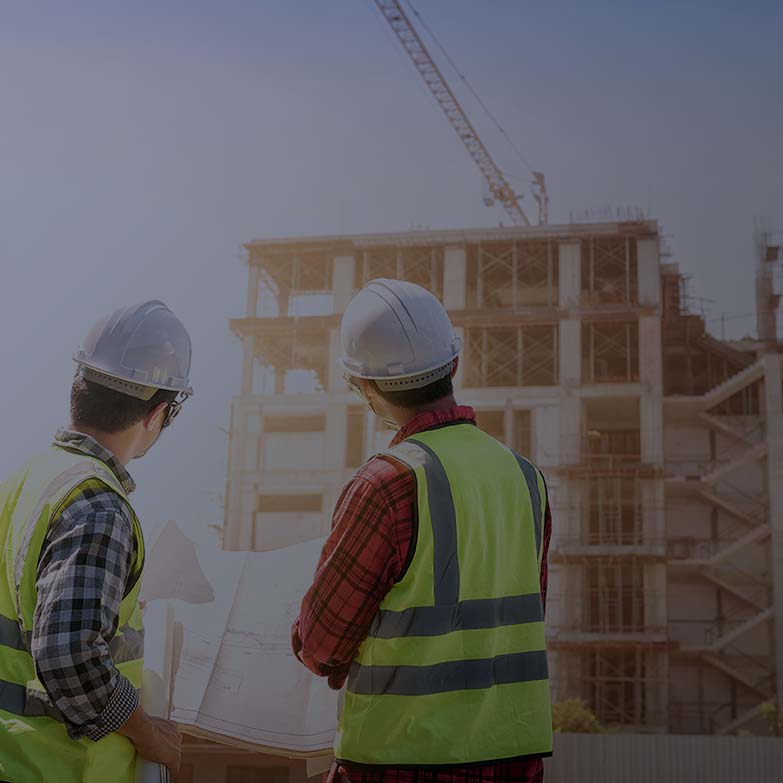Structure Working As A Consultant Providers: Ensuring High Quality and Conformity
In today's increasingly intricate construction landscape, the role of building consultancy services has come to be essential for ensuring high quality and compliance. These experts navigate the detailed internet of regulations and criteria, supplying necessary assistance that safeguards projects from expensive pitfalls. By applying robust quality control steps, they not only improve operational effectiveness but likewise strengthen stakeholder self-confidence. The market is advancing quickly, and arising patterns might redefine the consultancy landscape. Comprehending these changes is important for stakeholders aiming to stay in advance in an open market. What ramifications might these adjustments hold for future projects?
Importance of Building Consultancy
The value of structure consultancy services can not be overstated in today's complicated building landscape. With boosting regulatory demands and the requirement for sustainable methods, these services play a critical duty in making certain that jobs are provided in a timely manner, within budget plan, and to the greatest high quality requirements. Building specialists function as important intermediaries, bridging the void in between customers, designers, specialists, and regulative bodies.

Furthermore, developing working as a consultant services add to enhancing sustainability in building practices (building consultancy). By encouraging on material choice and energy-efficient layouts, they help customers attain their environmental objectives while also enhancing lasting operational expenses. To conclude, the importance of building working as a consultant depends on its capability to provide comprehensive support that assists in smoother task execution and fosters a society of liability and excellence within the building market
Trick Services Offered
Building working as a consultant solutions incorporate a series of vital offerings made to support clients throughout the construction process. One of the main solutions is task monitoring, which involves supervising the planning, implementation, and completion of building jobs to guarantee they are provided promptly and within budget. This service consists of coordinating between various stakeholders, including customers, professionals, and designers, to promote efficient communication and analytic.
An additional vital service is usefulness researches, which evaluate the feasibility of a proposed task. These research studies assess monetary, ecological, and logistical factors to identify whether a task is sustainable and possible. Expense evaluation and budgeting are additionally indispensable solutions, offering customers with in-depth insights right into forecasted expenses and aiding them handle funds efficiently.
Additionally, building working as a consultant firms often supply risk monitoring services, identifying prospective risks connected to building and construction projects and creating techniques to mitigate them. This aggressive method aids protect against expensive delays and makes certain compliance with industry criteria. Lastly, top quality assurance is an essential element, ensuring that all building and construction work fulfills specified requirements and regulations, consequently protecting the stability of the task. With each other, these solutions improve the overall success and efficiency of building and construction campaigns.
Navigating Regulations and Requirements
Browsing the complicated landscape of standards and regulations is an essential facet of structure consultancy services. Professionals in this field have to be fluent in a wide variety of legal frameworks, building codes, zoning regulations, and market requirements that govern building and construction methods. Compliance with these regulations is essential not just for legal adherence however also for making certain the security, sustainability, and performance of buildings.

Additionally, constructing experts need to also engage with different stakeholders, consisting of regulative bodies and governmental firms, to facilitate examinations and approvals. Establishing transparent communication channels with these entities promotes a joint setting that enhances compliance efforts. Ultimately, efficiency in navigating guidelines and criteria not only safeguards the integrity of a project however likewise enhances the professional's duty as a relied on expert in the construction sector.
Advantages of Quality Control
In the world of construction and consultancy, executing robust quality control methods provides many benefits that significantly enhance project results. Among the leading advantages is the reduction of mistakes and flaws, which straight converts to lower expenses and time cost savings. By recognizing potential concerns early while doing so, groups can make needed changes prior to they rise right into pricey issues.
Furthermore, quality control cultivates a society of liability and constant improvement within companies - building consultancy. This dedication to excellence not only enhances group morale yet likewise enhances the total track record of the consultancy, making it more appealing to customers seeking dependable companions
Quality assurance additionally makes certain compliance with international and regional standards, which shields the organization from lawful obligations and enhances stakeholder depend on. By adhering to developed guidelines, tasks are most likely to meet regulatory demands, thus preventing penalties and hold-ups.
Additionally, reliable quality control causes greater customer contentment. Delivering projects that satisfy or exceed customer expectations establishes long-lasting partnerships and can cause repeat business and recommendations. In recap, the advantages of quality control in building consultancy are diverse, contributing dramatically to the success and sustainability of building and construction projects.

Future Trends in Structure Consultancy
A significant shift is occurring within the structure working as a consultant field, driven by innovations in modern technology and advancing customer assumptions. The combination of Building Information Modeling (BIM) is transforming the way tasks are prepared and carried out, enhancing cooperation and precision throughout the task lifecycle. This electronic approach permits specialists to supply real-time understandings, thus enhancing decision-making and minimizing expenses.
Furthermore, sustainability is becoming a core emphasis, with clients increasingly requiring eco-friendly methods. Building professionals are currently expected to include eco-friendly building requirements, energy-efficient designs, and lasting materials into their job frameworks, straightening with worldwide environmental objectives.
Additionally, the increase of smart structures necessitates working as a consultant services that recognize the complexities of IoT (Net of Things) assimilation. This pattern calls for experts to adapt their expertise to consist of technological effectiveness in smart systems and automated administration solutions.
Moreover, the emphasis on client-centric services is growing, with individualized consultancy offerings coming to be vital. This change motivates consultants to establish tailored methods that not just meet governing compliance yet also straighten with the distinct requirements and preferences of their clients.
Conclusion
In final thought, developing consultancy services are essential for maintaining top quality and conformity within the building and construction market. As market demands advance, the duty of structure specialists will continue to adjust, making building consulting sure sustained excellence in building and construction methods.
Developing specialists provide strategic advice throughout the task lifecycle, from preliminary feasibility studies to forecast completion. In conclusion, the relevance of building consultancy exists in its capability to deliver thorough assistance that assists in smoother job execution and fosters a society of responsibility and excellence within the building and construction market.
One of the key solutions is project administration, which involves overseeing the preparation, execution, and conclusion of construction tasks to guarantee they are provided on time and within budget. In recap, the advantages of quality guarantee in structure consultancy are multifaceted, adding significantly to the success and sustainability of building projects.
The integration of Structure Info Modeling (BIM) is transforming the means tasks are prepared and carried out, boosting partnership and accuracy throughout the task lifecycle. (building consultancy)